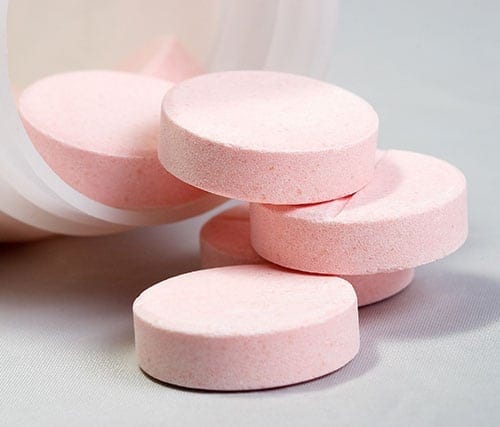Hypoglycemia is also known as low blood sugar. People with diabetes monitor their blood sugar levels to avoid this condition. From diabetic testing to using glucose tablets, there are ways to avoid hypoglycemia.
 Hypoglycemia is when your blood sugar is too low. Symptoms of low blood glucose include blurred vision, rapid heartbeat, nervousness, aggression, crankiness, hunger, headaches, trouble sleeping, confusion, shakiness, numbness, tingling, tiredness and weakness. Very low blood sugar may cause fainting, seizure or possibly a coma. Have diabetic testing supplies on hand to check your blood sugar. Symptoms can mimic high or low sugar so always use diabetic testing strips to verify levels.
Hypoglycemia is when your blood sugar is too low. Symptoms of low blood glucose include blurred vision, rapid heartbeat, nervousness, aggression, crankiness, hunger, headaches, trouble sleeping, confusion, shakiness, numbness, tingling, tiredness and weakness. Very low blood sugar may cause fainting, seizure or possibly a coma. Have diabetic testing supplies on hand to check your blood sugar. Symptoms can mimic high or low sugar so always use diabetic testing strips to verify levels.- Certain oral medications commonly used to treat diabetes may cause hypoglycemia. Sulfonylureas include glipizide, glimepiride and glyburide. These pills stimulate the pancreas to make more insulin and may put you at risk for hypoglycemia. All types of insulin shots can cause hypoglycemia as well.
- Low blood sugar is caused by skipping or delaying meals or eating meals that are too small. Drinking alcohol can lower your blood sugar. Increased physical activity may also cause hypoglycemia.
- Driving with hypoglycemia is dangerous because you may have trouble seeing clearly, difficulty concentrating and might not be able to react quickly. Always check your blood sugar before driving when driving for an hour or more and on insulin. During long trips, check blood sugar levels frequently and eat snacks. If your blood sugar level drops, stop for treatment. Your blood sugar should stabilize before driving again.
- Reactive hypoglycemia happens to people who do not have diabetes. Blood sugar levels drop within four hours after eating. In most instances, the meal has a high level of carbohydrates or sugar.
- With hypoglycemic unawareness, a person with diabetes does not experience the early warning symptoms of low blood sugar. The hormones epinephrine and glucagon that try to raise blood sugar are not released. With no warning, the person can go into severe hypoglycemia with disorientation, confusion and possible unconsciousness.
- Blood sugar at or below 70 mg/dL is considered low and can be harmful.
- For low blood sugar, use the rule of 15 treatment. Consume 15 grams of carbohydrates then check your blood glucose in 15 minutes. If blood sugar is still low, eat another 15 grams of carbohydrates then check blood sugar again in 15 minutes. Repeat until your blood sugar is in the goal range.
- Keep glucose tablets in convenient places such as your office desk, car, gym bag, golf bag, nightstand, handbag and pocket. They treat hypoglycemia without extra calories. Using soda or orange juice can make your blood sugar too high if given in a large quantity.
Avoid hypoglycemia by regularly checking your blood sugar levels. Keep glucose tablets and snacks handy for a rule of 15 treatments to stabilize blood sugar when necessary.






Glucose tablets are important if you are suffering from hypoglycemia, it will gives you energy because I am also using Glucose tablets